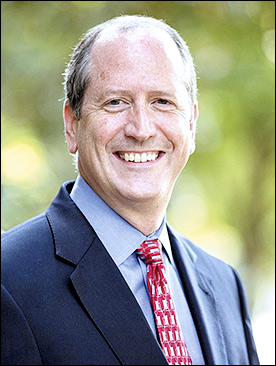By Jim Ellis

Charlotte, NC, state Sen. Dan Bishop
The Democratic side provided no drama because 2018 nominee Dan McCready was unopposed in last night’s special primary. Therefore, he automatically advances into the Sept. 10 special general election.
The 2018 Republican nominee, former pastor Mark Harris who denied Rep. Bob Pittenger (R-Charlotte) re-nomination in the May Republican primary, placed first in November’s final count, but the Bladen County voter fraud allegation claims were serious enough to deny him being officially declared the winner. With such negative publicity generated toward Harris during the post-election counting phase, in addition to some health concerns that recently surfaced, he decided not to run in the special election.
This opened the door for a new face, and Charlotte state Sen. Dan Bishop clinched the party nomination last night with 48 percent of the vote from a Republican field of 10 candidates, four of whom were competitive. Turnout was a low 31,103 Republican voters, 27.5 percent of whom voted before Election Day. Because he exceeded the minimum 30 percent threshold, Bishop now advances into the special general as the Republican nominee and will face McCready on Sept. 10.
In second place, with 20 percent, was Union County Commissioner Stony Rushing, followed by former Mecklenburg County Commissioner Matthew Ridenhour (17 percent), and realtor Leigh Brown (nine percent) who the national Realtors PAC supported with an independent expenditure of more than $1 million.
Sen. Bishop’s victory was complete. He won all eight counties, including getting 49.9 percent in his home county of Mecklenburg, and topping Commissioner Rushing in the latter man’s Union County, which, as the district’s Republican stronghold, turned out more voters than any other entity. He scored majority victories in the small Democratic counties of Anson, Richmond, Robeson, and Cumberland. In Bladen County, source of the regular election vote irregularity controversy, Sen. Bishop topped Rushing 45-37 percent.
Had not one of the candidates exceeded 30 percent last night, a run-off would have been scheduled between the first and second place finishers. If so, that contest would have taken the Sept. 10 date, and the special general would have been pushed to Nov. 5. The September date will now host two special elections, since that is the time the open 3rd District special election will also be decided.
The 9th District special is likely to attract national attention. Sen. Bishop was the author of the controversial transgender bathroom bill, the handling of which became the springboard for Gov. Pat McCrory’s (R) eventual defeat at the hands of Democrat Roy Cooper. We can expect McCready’s outside allies to make the issue the center point of attacks against Sen. Bishop. The Republicans will have to collectively handle this issue much better than they did at the height of the 2016 controversy in order to win this September election.
The 9th District was constructed in the mid-decade court-ordered redistricting that was completed prior to the 2016 election. NC-9 is a lean Republican district. President Trump carried the seat, 54-43 percent in the ’16 election. Additionally, the Republican Party leadership argued that Harris legitimately won the seat in November, maintaining that the number of fraudulent votes did not exceed the margin of victory. But, the Board of Elections rejected that argument.
The fact that Harris was even in victory range on a night when most competitive Republican races around the country were losing suggests the district fundamentally favors the GOP. They will need every bit of support to defeat McCready, who had already raised $2 million at the April 24 pre-primary financial disclosure deadline.
